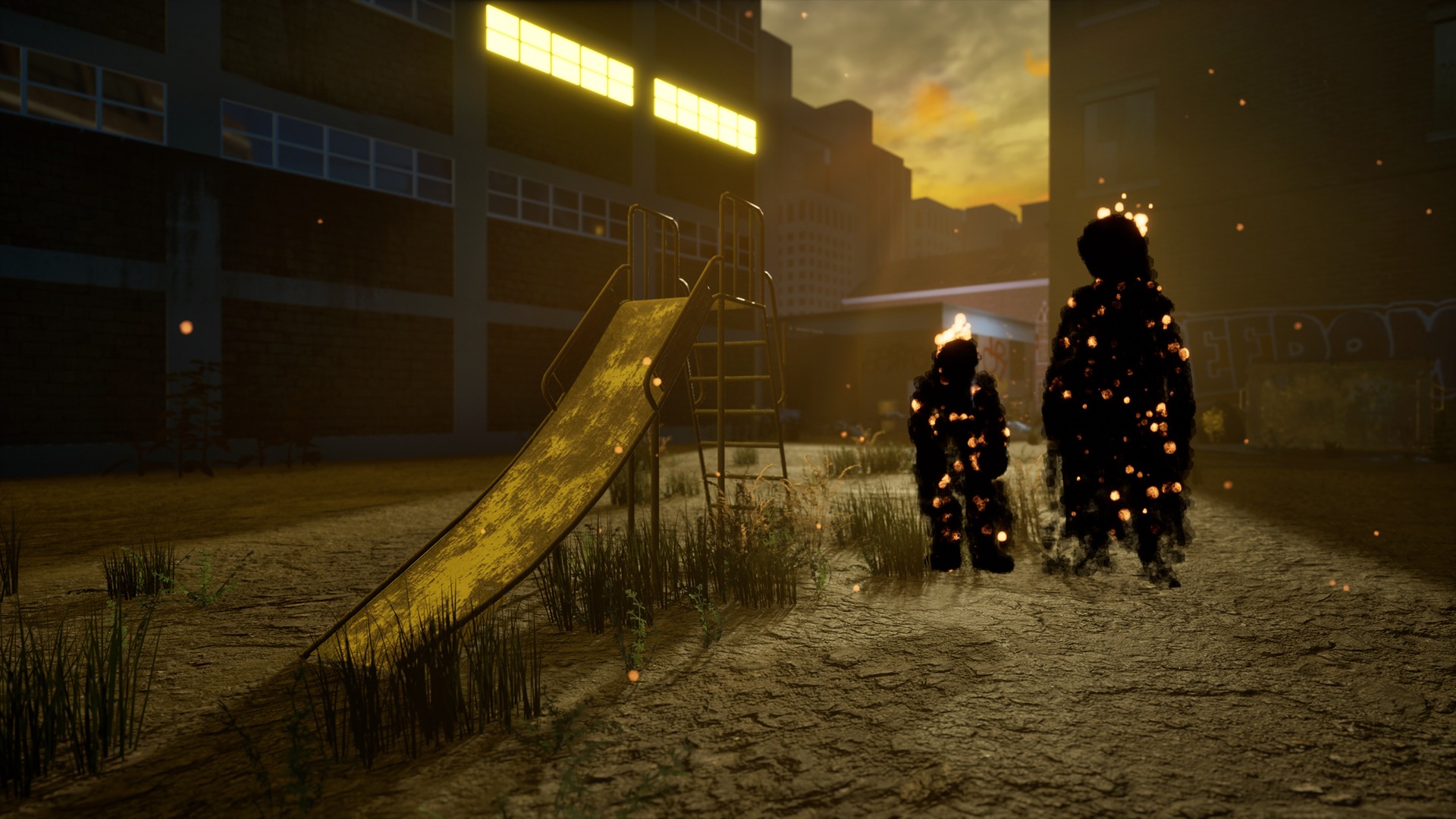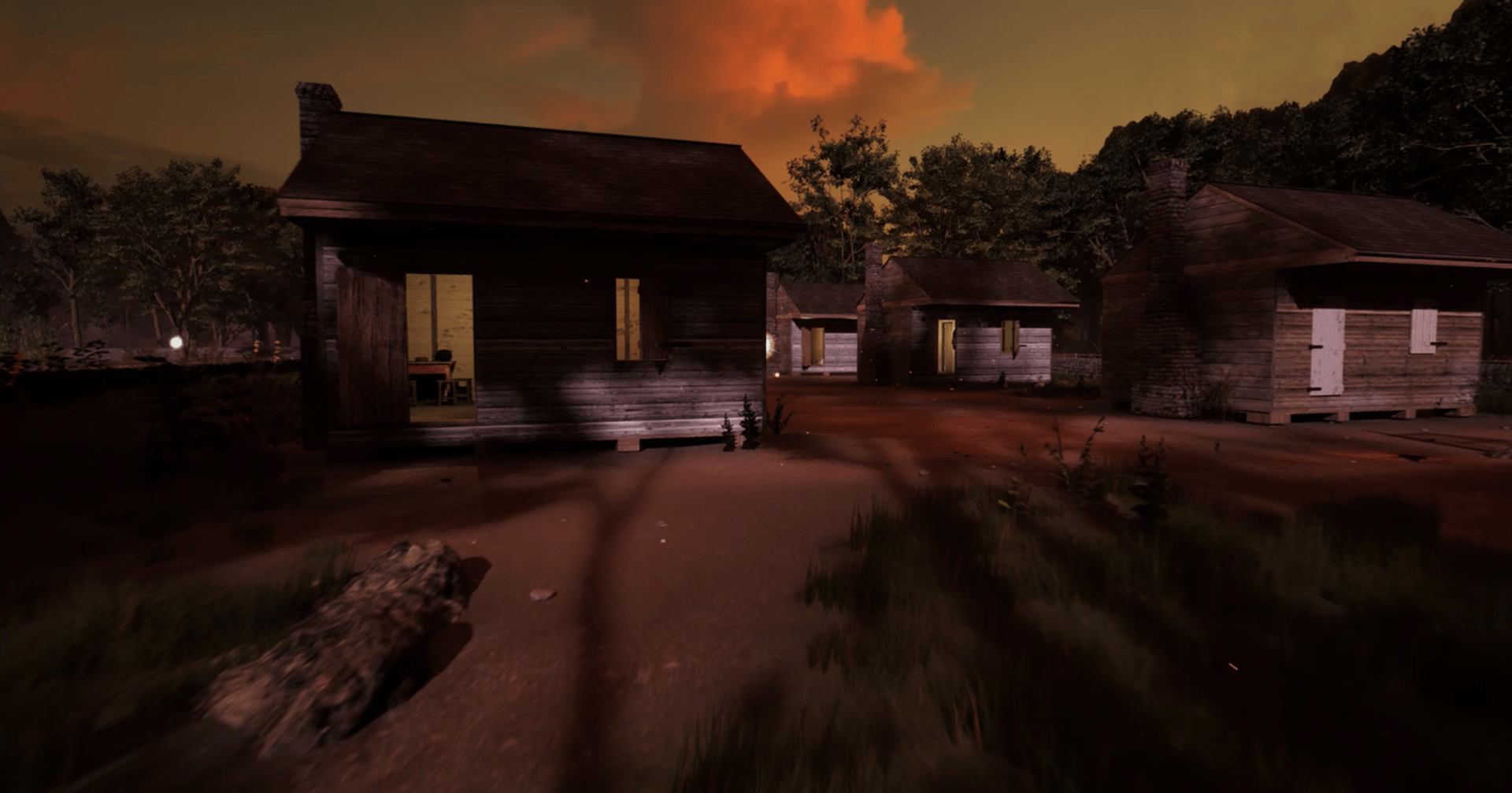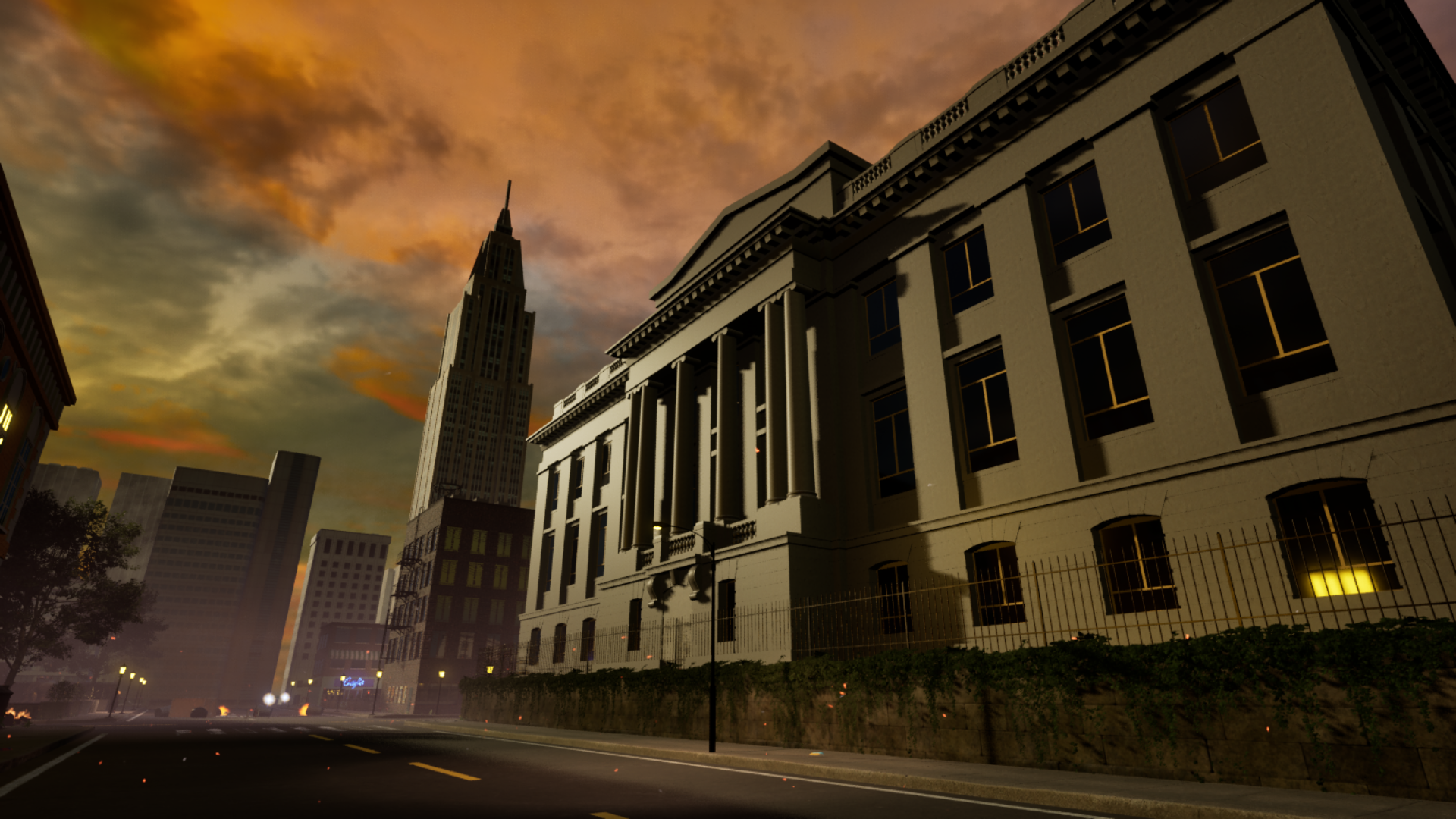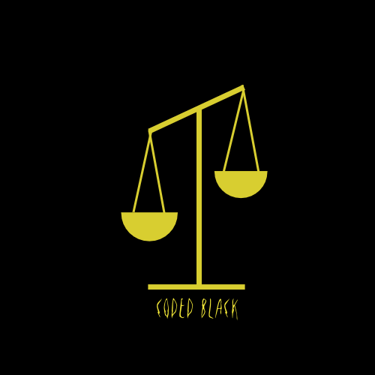CINEMATIC HISTORY:
DOCUMENTARIES
Alongside fictional media, documentary film has become an important space in which to tell the real stories of Black lives and Black history. Some documentaries initially served a propagandistic purpose to promote and encourage, for example, Black men to join the military, but now provide a snapshot into the important contribution African American soldiers made to the war effort during the Second World World. Other documentaries have a political purpose and chronicle the efforts of Black civil rights movements, religious and theological debates and political struggles. Others, still, turn to the arts, exploring significant Black creativity from hip-hop to ballet, drag to movie stars. Below you will find a selection of these documentary films from the 1930s to the present day.
A Study of Negro Artists, dir. Jules V. D. Bucher. 1935.
Watch the full feature via the National Video Archives.
This silent documentary film explores the development of African American art, and features several influential Black artists from the Harlem Renaissance such as Richmond Barthé, Aaron Douglas, Lois Mailou Jones and Augusta Savage.
To live as free men, dir. John Silver. 1942.
Watch the full feature via the Library of Congress or on YouTube.
This documentary explores the Penn School, a school for African Americans in the Sea Islands of South Carolina.
Hello West Indies, dir. John Page. 1943.
Watch the full film on BFI Player.
This documentary is a World War 2 propaganda film created by the UK's Ministry of Information. It takes the form of a radio message from Britain to the West Indies to show the importance of the West Indies to Britain's war effort.
Henry Browne, farmer, dir. Henry Barlow. 1942.
Watch the full feature via the Library of Congress.
This documentary is a short American propaganda film narrated by professional African American boxer and actor, Canada Lee. The film highlights the importance of African American contributions to America's war efforts during the Second World War.
The Negro Soldier, dir. Stuart Heisler. 1944.
Watch the short documentary on YouTube.
Created by the United States Army during the Second World War, this documentary is a propaganda film that aims to convince Black Americans to enlist in the army.
Victory Parade. 1946.
Watch the full feature on BFI Player.
Filmed in Britain by the Colonial Film Unit, this documentary chronicles the arrival of various international military brigades from across the British Empire as they gather in London to participate in the official commemoration of the end of the war in Europe.
A World is Turning, [or: A World is Turning (Towards the Coloured People)], dir G.L. Norman. 1948.
Watch the full feature on BFI Player or on YouTube.
This unfinished documentary highlights the contributions made to British life by members of the Black community and reflects different aspects of Black British society.
Walk In My Shoes, dir. Nicholas Webster. 1961.
Watch the full feature on YouTube.
This news documentary centres Black perspectives in America and uses point of view shots to give the viewer the experience of walking "in a Black person's shoes".
A Time for Burning, dir. William C. Jersey. 1966.
Watch the full film via the National Film Preservation Foundation.
This American documentary explores the relationship between the minister of Augustana Lutheran Church in Omaha, Nebraska, L. William Youngdahl, and his white and black Lutheran parishioners. It chronicles his attempts to persuade his white congregants to reach out to "Negro" Lutherans.
Behind Every Good Man, dir. Nikolai Ursin. 1967.
Watch the full film on YouTube.
This documentary short chronicles the life of an African American trans woman in LA, California, and offers a hopeful vision of her desires and ambitions.

Portrait of Jason. dir. Shirley Clarke. 1967.
This documentary tells the story of Jason Holliday, a gay African American who aspires to be a cabaret performer. Holliday is the only on-screen presence in the film, and he narrates his life and the hardship that surrounds his theatrical persona to the camera.
With No One to Help Us. 1967.
Watch the short film on the Internet Archive.
This documentary is a community action film that chronicles the efforts of a group of working-class mothers in Newark’s South Ward as they attempt to organise a collective food-buying club.
Color Us Black! dir. NET Journal. 1968.
Watch the full feature on YouTube.
This documentary chronicles a student-organised sit-in at Howard University as they took over the Administration building to advocate for better conditions on campus and protest white supremacy at the University.
No Vietnamese Ever Called Me Nigger, dir. David Loeb Weiss. 1968.
Watch the full film on YouTube.
This documentary presents an intimate account of anti-war protesters marching against the Vietnam war. The film also includes Black Vietnam veterans discussing their experience of racism in the military.
Off the Pigs! 1968.
Watch the short film on YouTube.
This documentary short is one of the first films to capture the Black Panther Party. This film features intimate interviews with Party leaders Huey Newton and Eldridge Cleaver who discuss the goals of the party and what led to its formation.
The Black Cop, dir. Kent Garrett Director. 1969.
Watch the full film on the Internet Archive.
This documentary short features interviews with Black polices officers and members of the community they oversee, and explores the role of "the Black cop" in upholding white supremacy.
Black Roots, dir. Lionel Rogosin. 1970.
Watch the full film via Kanopy.
This documentary film explores the experience of Black Americans through stories and songs shared by African American folk and blues musicians gathered in one room.
Finally Got the News, dir. Stewart Bird, Peter Gessner, and Rene Lichtman. 1970.
Watch the full film on YouTube.
This documentary explores the League of Revolutionary Black Workers, a radical Black workers' group based in Detroit's car factories. The film features interviews with members, supporters and opponents alongside footage of picket lines.
I Am Somebody, dir. Madeline Anderson. 1970.
Watch the short film on YouTube.
This is a political documentary that chronicles Black hospital workers in Charleston, South Carolina as they strike for over one hundred days and for higher pay and unionisation. The film captures their organisation efforts, the positive and negative reactions from the public, the help the strikers receive from Coretta Scott King and the arrival of the National Guard.
Ujamii Uhuru Schule Community Freedom School, dir. Don Amis. 1971.
Watch the full film on YouTube.
This documentary chronicles a day-in-the-life of an Afrocentric primary school, the Ujamii Uhuru Schule Community Freedom School in South Central Los Angeles.
‘Liverpool 8’, This Week. 1972.
Watch the full documentary episode on BFI Player.
This documentary is part of the This Week television series, and features Jonathan Dimbleby investigating racial tension and racially-motivated violence on the Falkner housing estate in Liverpool. These events are considered to be a precursor to the Toxteth riots which took place years later.
To Be Young, Gifted and Black, dir Michael Schultz. 1972.
Watch the full film on YouTube.
This film documents the life of writer and political activist Lorraine Hansberry, whose semi-autobiographical 1957 play A Raisin in the Sun was the first show on Broadway authored by an African American.
Nationtime, dir. William Greeves. 1972.
Narrated by Sidney Poitier and Harry Belafonte, this documentary explores the National Black Political Convention in 1972.
Woodcutters of the Deep South, dir. Lionel Rogosin. 1973.
This documentary explores white and Black American workers of the Gulf Coast Pulpwood Association and their attempts to overcome corporate exploitation and poor working conditions.
Let the Church Say Amen! dir. St. Clair Bourne. 1973.
Find out more about the documentary here.
This documentary explores the Black Church and the relationship between the Black community and Christianity. It centres on Hudson “Dusty” Barksdale, a young African American man and his journey to become a minister in the Church, and follows his journey from the Mississippi delta and Chicago to examine the African American religious experience, the role of the Church in rural and urban areas and the ways the church impacts these communities.

Black at Yale: A Film Diary, dir. Warrington Huddlin. 1974.
Watch the short film on YouTube.
In this documentary, Warrington Huddlin interviews two Black students at Yale college and explores how their visions of Blackness have been shaped and influenced by attending the elite college.
Tunde’s Film, dir. Tunde Ikoli and Maggie Pinhorn. 1974.
Watch the full film on BFI Player.
This documentary is filmed in East London in the 1970s and follows a group of young Black teenagers as they struggle to find work and are harassed by police, and then ultimately decide to rob a bank.
‘Carnival of Tears Today Special’, Today. 1976
Watch the full documentary episode on BFI Player.
This special edition of the current affairs series Today focuses on the Notting Hill Carnival, exploring the preparations for the carnival and the violence and clashes that ensued during the event.
Blacks' Britannica, dir. David Koff and Musindo Mwinyipembe. 1978.
Watch the full film on YouTube.
This American documentary examines specifically British racism, and analyses systemic racism experienced by Britain’s Black population and the growing militancy of Black communities.
Black to Front, dir. Linda Mcdougall. 1978.
Watch the full film on BFI Player.
This episode of World in Action investigates race relations in Brixton in the midst of the controversial Lambeth Central by-election campaign where candidates from the National Front to the Workers Revolutionary Party were standing for election. The film interviews residents of Haycroft Road in Brixton and delves into their views on racism and immigration.
Divide and Rule–Never, dir. Newsreel Collective. 1978.
Watch the full film on BFI Player.
Produced by the Newsreel Collective, this documentary film interviews young working-class Londoners–including ex-National Front members and first and second generation immigrants–and chronicles their experiences of racism in 1970s Britain. The film also explores the power of rock and reggae in the fight against racism and features an interview with the reggae band The Enchanters.
‘Black Vote’, Left, Right and Centre. 1980.
Watch the full feature on BFI Player.
This episode of the political programme Left, Right and Centre examines the lack of Black or Asian MPs in Britain. It features interviews with Bert Carless, Birmingham's first Black councillor and other candidates of colour who discuss the inequality and struggles facing Black and Asian communities that make political participation difficult.
Remnants of the Watts Festival, dir. Ulysses Jenkins. 1980.
Watch the short documentary on YouTube.
Through interviews, music performances and photographs, this documentary explores the Watts Summer Festival, a Black festival created in the wake of the 1965 Watts uprising in Los Angeles, California.
I Remember Harlem, dir. William Miles. 1981.
Watch the full film on YouTube.
This documentary explores the history of Harlem, New York from its Dutch settlement to its development into a Black centre of arts, culture and activist.
There was Always Sun Shining Someplace: Life in the Negro Baseball Leagues, dir. Craig Davidson. 1981.
Watch the full film on YouTube.
This documentary chronicles the Negro Leagues baseball and features interviews with Black baseball players alongside rare historical footage.
‘Brick by Brick’, dir. Shirikiana Aina. 1982.
Watch the short documentary via Ubu film.
This documentary short examines the gentrification of Washington, D.C. and focuses on the impact this has on its Black residents.
Gay Black Group. 1983.
Watch the short documentary on BFI Player.
In this documentary Paula Ahluwalia interviews members of the Gay Black Group. In the 1980s, this group held meetings at Gay's the Word, a bookshop in Bloomsbury, London, and provided support for gay and Black communities. In this film members discuss their experiences navigating their cultural and sexual identities.
Style Wars, dir. Tony Silver 1983.
This is an American documentary that examines hip-hop culture from its early development in the 1970s into the 1980s. While it mainly focuses on graffiti art, the film does explore bboying and rapping. The film won the Grand Jury Prize: Documentary at the Sundance Film Festival.
Sixty-four Day Hero: A Boxer’s Tale, dir. Franco Rosso. 1985
Watch the full film on BFI Player.
Using archive footage as well as interviews with family and friends, this documentary chronicles the troubled life and death of mixed-race British boxing champion Randolph Turpin.
Ballet Black, dir. Stephen Dwoskin. 1986.
Watch the full film on BFI Player.
This Arts Council film documents Ballet Negres, an all-Black dance troupe founded by Jamaican dancer Berto Pasuka.
Ethnic Notions, dir. Marlon Riggs. 1987.
Watch the full feature via the Internet Archive.
This documentary examines anti-Black stereotypes in popular culture from the American Civil War to the Civil Rights Movement in the 1960s. It uncovers and critiques stereotypes including the Tom, the Sambo, the Mammy, the Coon, the Brute, the Pickaninnies and the Minstrels in order to understand how racial consciousness and racism have developed in America.
Tongues Untied, dir. Marlon Riggs. 1989.
This is an experimental documentary film that seeks to “shatter the nation's brutalizing silence on matters of sexual and racial difference”. The film examines Black gay identity and queer culture, blending documentary footage with personal accounts and poetry. Marlon Riggs, the film’s director, also documents his own experiences as a Black gay man and how he coped with losing many of his friends to AIDS.
Paris Is Burning, dir. Jennie Livingston. 1990.
Watch the full film on the Internet Archive.
This American documentary examines the ball culture of New York City in the 1980s and explores the African American, Latino, gay, and transgender communities that were a part of it. The film features interviews with prominent members of the scene, including Pepper LaBeija who is known as the “last remaining queen of the Harlem drag balls”.
A Question of Color, dir. Kathe Sandler. 1993.
In this documentary, filmmaker Kathe Sandler investigates colorism, a caste system that exists within the African American community. The film features interviews with African Americans of all ages and explores their relationships to their skin colour and physical features.
Black Is... Black Ain't, dir. Marlon Riggs. 1994.
This documentary examines the Black experience in America and examines the multiplicity of expressions of Black identity. In 1995 the film won the Filmmakers’ Trophy at the Sundance Film Festival.
The Homecoming: A Short Film about Ajamu, dir. Topher Campbell. 1995.
Watch the drama-documentary on BFI Player.
This drama-documentary film follows queer activist and artist Ajamu as he travels from Brixton back to his hometown of Huddersfield for an exhibition of his work.
A Litany for Survival: The Life and Work of Audre Lorde, dir. Ada Gay Griffin and Michelle Parkerson. 1995.
This film chronicles the life and career of poet Audre Lorde.
4 Little Girls, dir. Spike Lee. 1997.
Watch the feature on YouTube and watch an interview with Spike Lee on the documentary here.
This historical documentary examines the 1963 16th Street Baptist Church bombing in Birmingham, Alabama which saw the murder of four African American girls, Addie Mae Collins, Carol Denise McNair, Cynthia Wesley, Carole Rosamond Robertson. The film tells the story of these four girls and situates their lives and deaths in the wider context of the Civil Rights Movement and white supremacist violence in America.
Modern Times: The Way of All Flesh, dir. Adam Curtis. 1997
Watch the full film on the Internet Archive or on BBC iPlayer.
This film tells the story of Henrietta Lacks, an African American woman whose cancer cells removed from her just before she died are the source of the HeLa cell line, which is one of the most important cell lines in medical research and many believe may hold the key to curing cancer.
Paul Robeson: Here I Stand, dir. St. Clair Bourne. 1999.
Watch the full film on YouTube.
This documentary explores the life and career of Paul Robesone, the celebrated African American athlete, actor, singer and activist. The film features interviews with Robeson himself as well as his friends and family and scholars who are experts on African American cinema.

Hip-Hop: Beyond Beats and Rhymes, dir. Byron Hurt. 2006.
This documentary explores hip-hop music and culture and examines issues of masculinity, violence, homophobia, and sexism in hip-hop through interviews with artists, activists, academics and fans. The film won Best Documentary at the San Francisco Black Film Festival.
This Is the Life, dir. Ava DuVernay. 2008.
This documentary chronicles the Good Life Cafe that was at the centre of the alternative hip hop movement that developed in 1990s Los Angeles. The film won the Audience Award for Best Documentary and Special Jury mention for general documentary excellence at the Pan-African International Film Festival in 2008, as Audience Awards at the ReelWorld Film Festival and the Langston Hughes African-American Film Festival.
Difficult Love, dir. Peter Goldsmid and Zanele Muholi. 2010.
This documentary is an intimate portrait of Zanele Muholi, an internationally celebrated South African lesbian photographer, and documents her personal experiences and takes on the challenges facing Black lesbians in South Africa.
Homegoings, dir. Christine Turner. 2013.
Watch the full feature on Vimeo and find out more about the documentary here.
This documentary examines African American death rituals. It explores the Owens Funeral Home on Lenox Avenue in Harlem, New York, and the work of funeral home director Isaiah Owens.
The New Black, dir. Yoruba Richen. 2013.
This documentary tells the story of gay rights in African American communities in the wake of the recent gay marriage movement and the fight over civil rights. The film investigates homophobia in the Black Church, and features interviews with activists, families and clergy on both sides of the campaign to legalise gay marriage. In 2014, the film won the Outstanding Independent Documentary Award at the Black Reel Awards and earlier in 2013 the film won the Audience Award for Best Documentary at the Philadelphia International Gay & Lesbian Film Festival.
Black Panthers: Vanguard of the Revolution, dir. Stanley Nelson Jr. 2015.
Using archival footage alongside interviews with surviving Black Panthers and FBI agents, this documentary tells the story of the revolutionary Black Panther Party. This film is the first in a three part documentary series exploring African American history, and was followed by Tell Them We Are Rising: The Story of Historically Black Colleges and Universities in 2017, while the final instalment The Slave Trade: Creating a New World is forthcoming.
I Am Not Your Negro, dir. Raoul Peck. 2016.
Narrated by Samuel L. Jackson, this documentary film adapts James Baldwin’s unfinished manuscript Remember This House. The film explores Baldwin’s reflections and memories of America’s history of racism and the struggle for civil rights. In 2018, I Am Not Your Negro won the BAFTA for Best Documentary.
Kiki, dir. Sara Jordenö. 2016.
Watch the trailer here and explore more about the film.
This is an American-Swedish co-produced documentary film that explores the drag and voguing scene in New York City in 2016. It examines the struggles that face LGBT youth of colour in the wake of international Black Lives Matter protests and the assault on trans rights taking place across the globe. It is considered to be an unofficial sequel to the influential 1990 documentary, Paris Is Burning.
Horror Noire: A History of Black Horror, dir. Xavier Burgin. 2019.
This documentary is based on Robin R. Means Coleman’s 2011 book Horror Noire: Blacks in American Horror Films from the 1890s, and explores the evolution of Black horror. It features interviews with Coleman, as well as actor Tony Todd, director Jordan Peele, and author Tananarive Due.
Vision Portraits, dir. Rodney Evans. 2019.
Watch the trailer with audio description and captions here.
This intimate documentary chronicles the lives of four blind and low vision artists including photographer John Dugdale, dancer Kayla Hamilton, writer Ryan Knighton and the film’s own director, acclaimed filmmaker Rodney Evans. Evans confronts his own sight loss and questions what it means to have vision and be creative. In 2019 the film won the Jury Prize for Best Documentary at the Frameline San Francisco International LGBTQ Film Festival.
